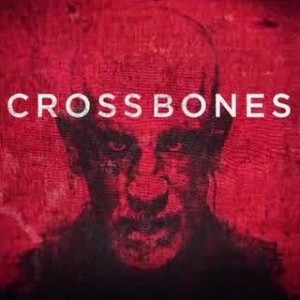 Let me preface this by confessing a bias: I really like gunpowder fantasy. On the other hand, I think the sub-genre focuses too much on pirates, as if they were the only thing going on between the rise of fire-arms and the Industrial Revolution. So, when NBC announced it was airing a series about Blackbeard, particularly on the tails of Black Sails on Starz, I wasn’t sure I wanted to ride another buccaneer bandwagon.
Let me preface this by confessing a bias: I really like gunpowder fantasy. On the other hand, I think the sub-genre focuses too much on pirates, as if they were the only thing going on between the rise of fire-arms and the Industrial Revolution. So, when NBC announced it was airing a series about Blackbeard, particularly on the tails of Black Sails on Starz, I wasn’t sure I wanted to ride another buccaneer bandwagon.
Then, I heard that John Malkovich was starring.
Malkovich not only convinced me to watch the series, his performance made me forgive the conspicuous absence of Blackbeard’s eponymous scruff, the obvious Russel Crowe stand-in playing the surgeon-assassin Tom Lowe, and the rough and rushed storytelling of the first few episodes.
Yes, this is going to be an odd review, because I have a lot of complaints about Crossbones, which is set to air its two-hour, first season finale Saturday night. I wanted to review it now, while still on the edge; after the big closer, we’ll see how I feel.
First, the gripes. Set in an age of global exploration, Crossbones ironically suffers the same claustrophobic, almost stage-theater feel of Black Sails—both series feature master pirates trying to carve out a real country for their followers on a Caribbean island. I understand budgets are an issue (after all, neither of these are on HBO) but it’s a rather central part of the pirate mythos to roam free on the wild waters of the world. Home-basing the characters in these two sea-rover tales feels a bit confining.
And, of course, the weird parallelism between Crossbones and Black Sails was a bit off-putting. Granted, Malkovich’s sophisticated and troubled (yet disconcertingly serene) Edward Teach and Toby Stephens’ desperate and ferocious Captain Flint are very different men, at very different points in their respective climbs to power and notoriety. But, the freebooters-crafting-a-free-polity theme (also core to the POTC franchise) is getting a little tired at this point.

Don’t call him Aubrey.
Nevertheless, a rather surprising thing developed as Crossbones pressed forward with its main storyline of an assassin converted and a mad king proven not quite so mad. (“We have no kings here,” Malkovich’s self-commissioned Commodore Teach would object.) I began to be genuinely surprised by the plot turns, without finding them incoherent or jarring.
When Teach needs to eliminate an old friend who is threatening to expose his strategy in the second episode, the twisted scheme that gives the Commodore exactly what he wants (including the absence of political blow-back from his fellow pirates) falls into place like an Oceans 11 plan. That was my first uptick in respect for the series.
By episode 4, the setting has expanded a bit, sending characters out to several islands on side-missions and easing the tight confines of the first few episodes. One gripe mitigated.
Then, a few episodes later, when Lowe reveals his true identity to Teach and it seems as if there is no possible outcome but for the assassin-spy to die at the Commodore’s hand, the writers pull a loose thread from a sub-plot (no spoiler) that magically illuminates several hidden aspects of Teach’s character with a single, tight, narrative knot that any salty sailor would be proud of.
Considering that the overarching storyline of the series revolves around an intricately designed chronometer, I should have expected a similar clockwork neatness in the story. (With a few exceptions, of course. For those in the know: how the hell did they know exactly where Jagger was torturing Kate?)
Despite this, the series is really character-driven, which should also be expected from a series about one of the most intriguing characters in history. Psychologically, Crossbones is magnificent, the shifts in allegiance surpassing Game of Thrones in their personal coherence.The one thing that seems too convenient and soapy to me about GoT is the way our feeling about a character can be completely flipped on its head by some anecdote that had been hidden from the audience.
And, likely, just made up on the fly. “I feel guilty about all this because when Jon was a sick baby I promised the gods I’d let him take Ned’s name, then I reneged.” Thanks for the exposition, Cat.
People have praised this aspect of the Martin’s tale for its “moral complexity,” but as a writing trick it’s just too gimmicky and facile, best used in moderation if at all. In Crossbones, the shifts back and forth leave the characters themselves intact and the audience not feeling like the writers just pulled a back-story trump card from their sleeves like a cheap magician.
The closest thing to that sort of cheap twist in Crossbones is when the political back-story enmity between the Protestant loyalist Lowe and the Jacobite exile Balfour is escalated when Balfour realizes that Lowe was the secret agent who had him arrested, a reveal that neither comes off as contrived nor shockingly overturns any of the characters. What it does change is the allegiances between the characters, including Kate, Balfour’s wife with whom Lowe had been carrying on an affair.
And, while we’re comparing Santa Compaña to Westeros: the subplot between the ruthless thief Nenna and her manipulative lover Rose is compelling, dark, and kept at just the right low boil to catch us unawares when it finally explodes. Distracted by the intrigues of the main plot, I was rocked by a swift moment of brutality that fans of GoT would thoroughly appreciate.
One final note. The previews for the finale seem to mirror the climax of the AMC series TURИ, with the peace of the home-base town disrupted by open skirmishing between redcoats and rebels. We’ll see how it all shapes up.
